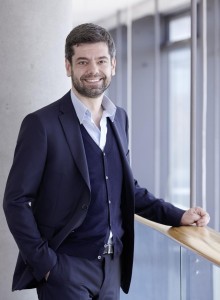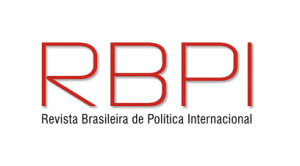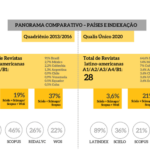Leonardo C. Bandarra, a member of the Editorial Team of Revista Brasileira de Política Internacional – RBPI, is a graduate student in International Relations at the University of Brasília – UnB, Brasília, DF, Brazil
Regional integration is an ever-present issue concerning Latin American politics. Only in the past two decades, the region has experienced the proliferation of myriad integration projects, as diverse and as creative as the Union of South American Nations (UNASUR); the Bolivarian Alliance for the Peoples of Our America (ALBA); the Community of Latin American and Caribbean States (CELAC); and the Pacific Alliance. From these projects a fascinating riddle of experiences, both economic and ideological, emerges. This conundrum has been subjected to sundry theoretical schemas, each of which focused on specific features of the regional integration projects.
Taking into account this scenario, Gian Luca Gardini, who is a professor at the University of Erlangen-Nuremberg, Germany, wrote an in-depth analysis on the various theoretical perceptions of the current panorama of Latin American integration process. In his paper “Towards modular regionalism: the proliferation of Latin American cooperation”, which was recently published in the Brazilian Journal of International Politics – RBPI, he argues that the current theories fail to address the great diversity of regional efforts to stir up cooperation among countries. Therefore, he proposes an alternative model to analyze the region: modular regionalism. With regards to his article and to his personal opinion about regional integration in Latin America, professor Gardini was interviewed by Leonardo C. Bandarra, a member of the editorial team of the RBPI
1. In your paper, you developed the concept of modular regionalism, which is designed to address the heterogeneous varieties and shapes regionalism has developed in Latin America. How would you synthetize this concept for someone who was not introduced to the core literature of regional integration?
Essentially the academic literature has defined regionalism in the 1960s as “closed” in that it was meant to insulate the region and protect it from external competition, thus favouring the development of the local nascent industry, in line with the theory of industrialisation through import substitution. In the 1990s, the regionalist model was labelled “open” in that it favoured open economy and free trade to compete at the global level and the region would be an intermediate level between single states and the global market. Today, regionalist schemes created under those paradigms still exist, at least formally. In addition, the many new and innovative additions of the last ten years further complicate the Latin American scenario. How do we define and characterise this very heterogeneous and diverse set of coexisting projects that form Latin American regionalism today? I propose “modular regionalism” for two reasons. First, as the definition itself suggests, the current scenario is composed of modules, where countries pick and choose the regional agreements that best fit their international and development agenda. Each project, or module, can be combined with a variety of other projects or modules, thus configuring a modular structure that varies per each country. This accommodates diversity, low level of actual commitment, and it tolerates divergence at the discursive and policy level. The second reason is that modular regionalism also proposes a policy direction: specialised modules or projects in order to manage the existing complexity.
2. In your opinion, what is the main difference between the elder and most consolidated mechanisms of integration in Latin America, e.g. MERCOSUR and the Andean Community of Nations, and new “post-liberal” ones, such as UNASUR and CELAC?
Essentially UNASUR and CELAC are political platforms that lack a clear economic strategy. However, other recent projects such as ALBA and the Pacific Alliance also have their own economic and development model. It seems to me that the recent wave of regionalism in Latin America is trying to propose genuinely local solutions to local problems. Also, I am not sure that the meaning of “integration” is the same in Latin America as it is elsewhere. I feel that in this region integration may mean almost anything, therefore very little in practice. Integration implies either an economic dimension (removal of barriers) or a significant cessation of sovereignty. Short of these, I prefer to speak about cooperation rather than integration. It may be less exciting but it would be more accurate. In Latin America, regionalism is a lot about cooperation but little about integration. This is not necessarily negative or inconsequential. It is just a different way to look at regional dynamics from the one we may have for instance in Europe. And I feel that the European Union (EU) example is, actually, a bias to the understanding of regionalism elsewhere in the world.
3. Concerning this biased EU model you mentioned, and as a European scholar who is also an expert in Latin American studies, do you believe that it is possible for Latin America to develop institutions as intertwined as you have across the Atlantic? If so, would that be desirable?
I think that the European Union is a unique case. It is the result of very specific geographic, historical, political and economic conditions. These are not present in other parts of the world. These other regions should look for their own regionalist model and not follow the EU. I have argued and written consistently that the EU cannot be a model, understood as blueprint, for Latin America. Yet, the EU can be a reference. This is to say that some of the integrationist challenges faced in Europe are present in other regions too. The way in which the EU has dealt with those challenges can be an example for reflection or inspiration, but not a model to copy. As an example, MERCOSUR is looking for a system to redistribute the income from the common external barrier, although with its limitations. The EU, but for that sake SADC too, provide examples of how other regions have tackled the same challenge. Latin America can look at these historical and political experiences and, then, decide about its own system.
4. As you may have seen in the Media, the issue “MERCOSUR” is a thorny one in Brazilian politics. This could be confirmed when we take into account last year’s presidential election, in which one of the main proposals of president Rousseff’s chief opponent was to set back MERCOSUR, in order to allow Brazil to freely negotiate extra-bloc free trade agreements. For you, as a specialist in regional cooperation, is MERCOSUR beneficial to its members?
I have to say that I have a particular affection for MERCOSUR as I started studying it almost since its creation. MERCOSUR has produced a number of economic, especially at the beginning, and political benefits for its members. However, it has not met, perhaps, too high expectations. Peace, democracy and the elimination of conflict hypotheses are all benefits also connected to the creation and functioning of MERCOSUR. So are higher visibility at the international level for its members, increased negotiating weight, and ultimately some increase and improvement in intraregional trade. Disappointment is perhaps linked to lack of social progress and to the reality that structural limitations exist, such as economic and population asymmetries, and trade patterns where most of the members’ trade takes place with extra-regional partners. Overall I do believe that MERCOSUR was, is and will be a good deal for its members. That said, the opportunity to conclude free trade agreements with third parties may need some rethinking. The debate did not happen in Brazil only but in Uruguay too for instance, signalling that the problem is not one of economic size or international power, but a real sticking issue.
Mini currículo do autor:
 Gian Luca Gardini is Professor of International Relations and Chair of International Business and Society Relations with focus on Latin America at Friedrich Alexander University in Nuremberg, Germany. He has previously taught at the University of Cambridge and at the University of Bath in the United Kingdom and held visiting positions in Brazil, Uruguay, China and Italy. Professor Gardini holds a Master of Philosophy (MPhil) and a PhD in International Relations from the University of Cambridge. He also obtained a Graduate Diploma in European Studies from the Italian Centre for International Economic Cooperation.
Gian Luca Gardini is Professor of International Relations and Chair of International Business and Society Relations with focus on Latin America at Friedrich Alexander University in Nuremberg, Germany. He has previously taught at the University of Cambridge and at the University of Bath in the United Kingdom and held visiting positions in Brazil, Uruguay, China and Italy. Professor Gardini holds a Master of Philosophy (MPhil) and a PhD in International Relations from the University of Cambridge. He also obtained a Graduate Diploma in European Studies from the Italian Centre for International Economic Cooperation.
His main research interests cover the international relations of Latin America, foreign policy analysis, comparative regional integration, international organization, and issues of international power, order and institutions. Among his recent books are The Origins of Mercosur. Democracy and Regionalization in South America (Palgrave MacMillan, 2010), Latin American Foreign Policies: Between Ideology and Pragmatism (Palgrave MacMillan, 2011), and Latin America in the 21st Century, Zed Books (2012). Most recently, Prof. Gardini has investigated Latin American responses to the rise of Brazil. E-mail: gian.luca.gardini@fau.de
Para ler o artigo, acesse:
GARDINI, G. L. Towards modular regionalism: the proliferation of Latin American cooperation. Rev. bras. polít. int. [online]. 2015, vol.58, n.1, pp. 210-229. [viewed 23th November 2015]. ISSN 1983-3121. DOI: 10.1590/0034-7329201500111. Available from: http://ref.scielo.org/zd9k4z
Como citar este post [ISO 690/2010]:

















Pingback: Guinada editorial e preparação para novos desafios são marcas da primeira edição de 2015 da RBPI | IBRI
Pingback: Semana RBPI em Scielo em Perspectiva – Humanas, por Antônio Carlos Lessa | Mundorama